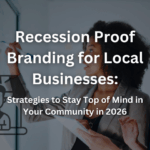Did you know there are currently more than 600 million blogs on the internet out of the 1.7 billion websites. Thank about that for a second. That’s one third of websites.
“86% of content marketers use blog posts as part of their marketing strategy”
(SEMRush 2019)
You’ve read books, watched videos on Youtube, attended seminars, live events, and done courses. That’s great that you’ve got a thirst for knowledge, but let me tell you the problem:
Every marketer has a basic directive that they must follow: CREATE CONTENT. CONTENT IS KING.
It is his DUTY to create content, even if that content already exists! Re-inventing the wheel. Let that sink in for a moment, EVERYONE has to create content even if there is a wealth of content on that topic already.
This ends up with every marketer differentiating himself and making his own ‘style of marketing’.
This is disastrous for YOU the student. It means every marketer you study under uses different terminology and has different approaches.
And to compound the problem, we often study marketing from several different marketers, each using his own terminology and trying to be different… which only ends up confusing us utterly. I would know, I was there, myself!
Learning Marketing
It’s like you have to start as a master of marketing before you can study it.
If you are learning marketing and not yet a master, it is incredibly confusing to study marketing from a variety of authors. And it is often a necessity because it is rare that ONE marketing author gives you all the marketing data you’ll ever need.
So, the system is rigged, and results in you insatiable looking for more and more data, and getting more and more confused. It’s like eating at McDonalds, you’re never satisfied, you always need more, and you just keep getting sicker.
Let me tell you a story.
I have a friend who owns an electrical repair company. He is a master electrician and an avid marketer. He LOVED to study marketing, and had invested tens of thousands of dollars on training programs, masterminds, courses, you name it. He was very well-informed and he knew far more, marketing-wise than any other electrician on the face of the planet, this I am sure!
I had a lot of respect for him, not only was a total pro in his technical field, he was also a pro in marketing, a rare breed.
But there was a problem
We’ve all heard the phrase: what you don’t know can’t hurt you. Well in this case, it was more like: what you do know can hurt you.
Our electrician knew so much, and all of this information was alive in his mind, and it put him into a state of inaction.
There were just too many tactics and strategies to deploy!
Some of them in conflict, some of them completely incorrect!
He just ended up paralyzed. Unable to follow through on any campaign because he had so many that he wanted to do; which lead to lack of growth for his company.
The truth is always simple, therefore once you get to the truths of a topic, you’ll find that there isn’t a lot of data you need. And you find out that marketing gurus are just regurgitating the same knowledge (tainted by their own confusions), or they are giving knowledge which is flat out false.
While more knowledge is actually not harmful, what actually ends up occurring is: more knowledge which is not understood in the first place, added to previous knowledge which itself is not fully understood, and therefore conflicts arising.
So, if we look more closely, ‘too much data’ gets distilled into:
- Conflicting data
- Misunderstood data added to more misunderstood data
- Data not aligned together in a cohesive flow or system
- False data
Too much true data shouldn’t be a problem, as long as:
- It doesn’t conflict and cause a confusion with something you knew earlier
- It is understood
- It helps to reinforce past data you studied.
Have you felt like you need to be doing 50 campaigns all at once? There is a good chance that at the bottom of your difficulty in getting results with digital marketing is: false, conflicting and un-aligned data.
Action Steps:
- Before you accept another piece of information, verify if it is true or not.
- If you are confused about something, don’t just ‘skip it’, handle your confusion!






